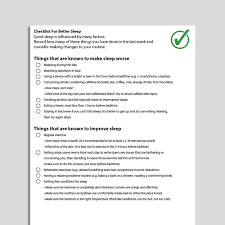Understanding and Overcoming Depression
Depression is a mental health condition that affects millions of people worldwide. It is characterized by persistent feelings of sadness, hopelessness, and a loss of interest in activities that were once enjoyable. While occasional feelings of sadness are a normal part of life, depression goes beyond temporary emotions and can significantly impact one’s daily functioning and overall well-being.
The causes of depression can be complex and multifaceted. It can be triggered by various factors such as genetics, chemical imbalances in the brain, traumatic life events, chronic illness, or ongoing stress. It is essential to recognize that depression is not a sign of weakness or a personal flaw; it is a legitimate medical condition that requires proper understanding and treatment.
Recognizing the symptoms of depression is crucial in order to seek help promptly. Some common signs include persistent feelings of sadness or emptiness, loss of interest in activities, changes in appetite or weight, sleep disturbances (insomnia or excessive sleep), fatigue or lack of energy, difficulty concentrating or making decisions, feelings of worthlessness or guilt, and even thoughts of self-harm or suicide.
If you suspect that you or someone you know may be experiencing depression, it is essential to reach out for professional help. Mental health professionals such as therapists or psychiatrists are trained to diagnose and treat depression effectively. They can provide therapy sessions tailored to individual needs and may prescribe medication if necessary.
In addition to seeking professional help, there are also steps individuals can take on their own to manage depressive symptoms:
- Build a support network: Surround yourself with understanding and supportive friends and family members who can offer emotional support during difficult times.
- Practice self-care: Engage in activities that bring you joy and relaxation. This could include hobbies like painting, reading, exercising regularly, practicing mindfulness techniques like meditation or yoga.
- Establish healthy routines: Maintaining regular sleep patterns and eating nutritious meals can have a positive impact on overall well-being.
- Challenge negative thoughts: Depression often leads to negative thinking patterns. Practice identifying and challenging these thoughts by replacing them with more realistic and positive ones.
- Seek social connections: Join support groups or engage in community activities to connect with others who may be going through similar experiences. Sharing your feelings and experiences can provide a sense of belonging and understanding.
Remember, overcoming depression takes time and effort. It’s important to be patient with yourself and celebrate small victories along the way. With the right support, treatment, and self-care practices, it is possible to manage depression effectively and regain a sense of hope, joy, and fulfillment in life.
If you or someone you know is struggling with depression or having suicidal thoughts, please reach out to a mental health professional or contact a helpline immediately. You are not alone, and help is available.
6 Tips for Managing Depression: Seeking Professional Help, Building a Support Network, Practicing Self-Care, Setting Realistic Goals, Challenging Negative Thoughts, and Establishing Routines
- Seek professional help
- Build a support network
- Practice self-care
- Set realistic goals
- Challenge negative thoughts
- Establish routines
Seek professional help
Seeking Professional Help: A Vital Step in Overcoming Depression
When it comes to dealing with depression, seeking professional help is a crucial step towards recovery. While it may feel overwhelming or even intimidating to reach out, consulting with a mental health professional can make a world of difference in managing and overcoming depressive symptoms.
Depression is a complex condition that requires specialized knowledge and expertise to diagnose and treat effectively. Mental health professionals, such as therapists, psychologists, or psychiatrists, have the necessary training and experience to provide the support and guidance needed during this challenging time.
One of the significant advantages of professional help is that it offers a safe space for individuals to express their thoughts and emotions openly. These professionals are trained to listen attentively, offer empathy, and provide non-judgmental support. They create an environment where individuals can explore the underlying causes of their depression and develop strategies for coping.
Moreover, mental health professionals can tailor treatment plans based on individual needs. They may employ various therapeutic approaches such as cognitive-behavioral therapy (CBT), which helps identify negative thought patterns and replace them with more positive ones. Additionally, they may recommend medication if necessary, as certain antidepressants can help regulate brain chemistry.
It’s important to remember that seeking professional help does not imply weakness or failure; rather, it demonstrates strength and resilience in taking control of one’s mental well-being. Depression is a medical condition that deserves the same attention as any other physical ailment.
If you or someone you know is experiencing symptoms of depression, don’t hesitate to reach out for professional assistance. You don’t have to face this alone. Mental health professionals are there to provide compassionate care and effective treatment options tailored to your specific needs.
Remember, seeking professional help is not just about managing depression; it’s about reclaiming your life from its grip. By taking this vital step towards healing, you open yourself up to a brighter future filled with hope, resilience, and renewed joy.
Build a support network
The Importance of Building a Support Network in Overcoming Depression
Dealing with depression can be an isolating and overwhelming experience. It’s crucial to remember that you don’t have to face it alone. Building a support network is an essential step towards overcoming depression and finding the strength to heal.
A support network consists of people who care about your well-being and are there to offer emotional support, understanding, and encouragement. They can be friends, family members, therapists, support groups, or even online communities dedicated to mental health.
Having a support network provides several benefits when dealing with depression:
- Emotional Support: Depression can make you feel alone and misunderstood. Having people who genuinely listen and empathize with your struggles can provide immense comfort and validation. They can offer a safe space for you to express your feelings without judgment.
- Encouragement and Motivation: Depression often saps motivation and makes it challenging to take positive steps forward. A strong support network can provide the encouragement you need to seek treatment, engage in self-care activities, or pursue hobbies that bring you joy. Their presence can help motivate you during difficult times.
- Perspective and Advice: Sometimes, depression distorts our thinking patterns, making it hard to see beyond the negative thoughts. Trusted individuals in your support network can offer fresh perspectives and valuable advice based on their experiences or professional knowledge.
- Practical Assistance: Your support network may also be able to provide practical help when needed. Whether it’s running errands, preparing meals together, or accompanying you to therapy sessions, their assistance can alleviate some of the burdens that depression may impose on daily life.
Building a support network requires effort and vulnerability. Here are some steps you can take:
– Reach out: Initiate conversations with trusted friends or family members about what you’re going through. Let them know that their support is important to you.
– Seek professional help: Therapists or counselors play a vital role in your support network. They offer professional guidance and can help you navigate through your journey of healing.
– Join support groups: Consider joining local or online support groups where you can connect with others who understand what you’re experiencing. Sharing stories and advice within these communities can be incredibly empowering.
– Be open to new connections: Sometimes, building a support network involves reaching out to new people who share similar interests or experiences. Engaging in activities or volunteering in organizations related to your hobbies or passions can lead to meaningful connections.
Remember, building a support network takes time and patience. Not everyone may understand depression fully, but those who genuinely care will be there for you. Together, you can create a strong foundation of support that will help you overcome the challenges of depression and find hope for a brighter future.
Practice self-care
The Importance of Self-Care in Managing Depression
When it comes to managing depression, practicing self-care is crucial. Self-care refers to prioritizing and engaging in activities that promote your physical, mental, and emotional well-being. It involves taking intentional steps to nurture yourself and provide the care and attention you need.
Depression can often leave individuals feeling drained, overwhelmed, and disconnected from themselves. Practicing self-care helps counteract these negative effects by offering a way to replenish energy, restore balance, and cultivate a sense of self-worth.
Engaging in self-care activities can vary greatly from person to person. What matters most is finding practices that resonate with you and bring you joy, relaxation, and a sense of fulfillment. It could be as simple as taking a warm bath, going for a walk in nature, reading a book that inspires you, or spending quality time with loved ones.
Self-care also involves setting boundaries and learning to say no when necessary. It’s important to recognize your limits and prioritize your own needs without feeling guilty or selfish. By doing so, you create space for self-reflection, personal growth, and improved overall well-being.
Regularly practicing self-care can have profound effects on managing depressive symptoms. It allows you to reconnect with yourself, reduce stress levels, improve mood, boost self-esteem, and enhance resilience. By investing time and effort into caring for yourself, you are actively working towards healing and recovery.
Remember that self-care is not a one-time solution but an ongoing practice. It’s essential to incorporate self-care into your daily routine rather than viewing it as an occasional indulgence. Consistency is key in reaping the long-term benefits of self-care.
If you’re unsure where to start with self-care or find it challenging to prioritize yourself amidst the demands of daily life, consider seeking support from a mental health professional who can guide you through the process. They can help tailor self-care practices to your specific needs and circumstances.
In summary, practicing self-care is a vital component of managing depression. By making self-care a priority, you are taking proactive steps towards nurturing your well-being, enhancing self-love, and finding solace in the midst of life’s challenges. Remember, you deserve care and attention just as much as anyone else.
Set realistic goals
Setting Realistic Goals: A Key to Managing Depression
When dealing with depression, it can often feel overwhelming and challenging to navigate through daily life. One effective strategy for managing depressive symptoms is to set realistic goals. While it may seem simple, this approach can have a significant impact on your overall well-being.
Depression can drain your energy and motivation, making even the simplest tasks feel insurmountable. By setting realistic goals, you break down larger tasks into smaller, more manageable steps. This approach allows you to focus on achievable objectives and build a sense of accomplishment along the way.
Here are a few tips for setting realistic goals when dealing with depression:
- Start small: Begin by setting small, achievable goals that are specific and measurable. For example, instead of aiming to clean the entire house in one day, focus on tidying up one room or completing one household chore at a time.
- Prioritize self-care: Make self-care a priority by setting aside time each day for activities that bring you joy and relaxation. This could include taking a walk in nature, practicing mindfulness or meditation, or engaging in a hobby that you enjoy.
- Break tasks into manageable steps: If you have a larger goal in mind, break it down into smaller steps or milestones. This helps prevent overwhelm and allows you to make progress gradually.
- Be flexible and adjust as needed: Recognize that some days may be more challenging than others when dealing with depression. Be flexible with your goals and give yourself permission to adjust them as needed without judgment or guilt.
- Celebrate achievements: Acknowledge and celebrate each accomplishment along the way, no matter how small they may seem. This positive reinforcement can boost your motivation and self-confidence.
Setting realistic goals not only helps you manage depression but also provides structure and direction in your life. It gives you something to work towards while ensuring that your expectations align with your current capabilities and circumstances.
Remember, managing depression is a journey, and progress may not always be linear. Be patient with yourself and practice self-compassion. Celebrate the small victories and seek support from loved ones or professionals if needed. With time, perseverance, and realistic goal-setting, you can gradually regain control over your life and find a sense of purpose and fulfillment.
Challenge negative thoughts
Challenging Negative Thoughts: A Key Step in Overcoming Depression
When dealing with depression, negative thoughts can become overwhelming and can perpetuate feelings of sadness and hopelessness. However, challenging these negative thoughts is a crucial step towards breaking free from the grip of depression.
Negative thoughts often stem from distorted thinking patterns. They can include self-critical beliefs, catastrophic thinking, or a tendency to focus only on the negatives in any given situation. These thoughts can create a vicious cycle that reinforces depressive feelings and makes it difficult to see things in a more positive light.
Challenging negative thoughts involves questioning their validity and replacing them with more realistic and balanced alternatives. Here are some strategies to help you challenge those negative thoughts:
- Identify the thought: Pay attention to the negative thoughts that arise in your mind. Notice when you start engaging in self-criticism or when you perceive situations in an overly pessimistic way.
- Question the evidence: Ask yourself if there is concrete evidence to support these negative thoughts. Often, we tend to make assumptions or jump to conclusions without any real basis. Challenge yourself to find alternative explanations or interpretations for the situation at hand.
- Consider alternative perspectives: Try to step back and view the situation from different angles. What would someone else, who isn’t experiencing depression, think about it? This exercise helps broaden your perspective and reduces the influence of distorted thinking.
- Look for positive aspects: Train yourself to identify positive aspects of situations or events that you may have overlooked due to negative thinking. Even small positives can help shift your focus away from negativity.
- Practice self-compassion: Treat yourself with kindness and understanding as you challenge negative thoughts. Recognize that everyone has ups and downs, and it’s okay to make mistakes or have setbacks along the way.
- Seek support: Share your challenges with a trusted friend, family member, or therapist who can provide guidance and help you challenge negative thoughts. Sometimes an outside perspective can shed light on alternative interpretations you may not have considered.
Remember, challenging negative thoughts takes practice and patience. It won’t happen overnight, but with consistent effort, you can gradually reframe your thinking patterns and reduce the impact of depression on your life.
By challenging negative thoughts, you empower yourself to regain control over your mental well-being and open up space for more positive and constructive thinking. Take this important step towards overcoming depression and embracing a more fulfilling life.
Establish routines
Establishing Routines: A Key to Managing Depression
When battling depression, establishing routines can be a powerful tool in managing symptoms and promoting overall well-being. Depression often disrupts daily life, making it challenging to find motivation or structure. However, implementing regular routines can provide stability and a sense of control, which are essential for those struggling with depressive symptoms.
Creating a routine involves setting consistent schedules for activities such as waking up and going to bed at the same time each day, eating meals at regular intervals, and engaging in physical exercise or other forms of self-care. While it may seem simple, adhering to these routines can have a significant positive impact on mental health.
One of the key benefits of establishing routines is that they help combat feelings of lethargy and lack of motivation commonly associated with depression. When tasks become habitual, they require less mental energy and decision-making, making them easier to accomplish. This can help break the cycle of inactivity often experienced by those with depression.
Routines also provide a sense of structure and purpose. When you have set times for specific activities, it creates a framework for your day, giving you a sense of direction and accomplishment. This structure can help alleviate feelings of aimlessness or being overwhelmed that often accompany depression.
Moreover, routines contribute to better sleep hygiene—a crucial aspect of managing depression. Going to bed and waking up at consistent times helps regulate your body’s internal clock and promotes healthier sleep patterns. Quality sleep is vital for mental health as it allows the brain and body to rest and rejuvenate.
While establishing routines is beneficial, it’s important to be flexible and compassionate with yourself. Depression can fluctuate in intensity from day to day, so there may be times when sticking strictly to your routine feels challenging. During these periods, try adjusting your schedule or breaking tasks into smaller, more manageable steps.
Remember that building routines takes time and patience. Start small by incorporating one or two consistent activities into your day and gradually expand from there. It may be helpful to create a visual schedule or use reminders on your phone to help you stay on track.
If you’re struggling with depression, consider incorporating routines into your daily life. They can provide stability, motivation, and a sense of purpose. However, it’s important to seek professional help as well. A mental health professional can provide guidance tailored to your specific needs and help you develop strategies for managing depression effectively.
By establishing routines and seeking support, you can take positive steps toward managing depression and improving your overall well-being.




